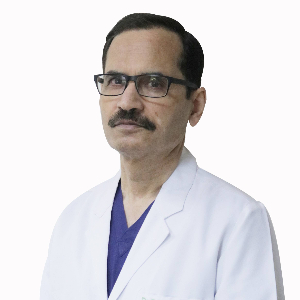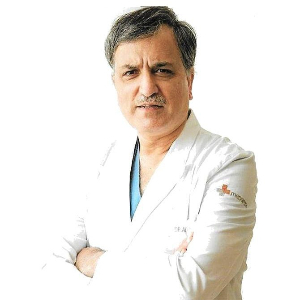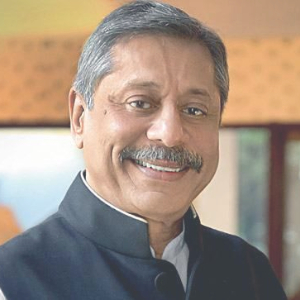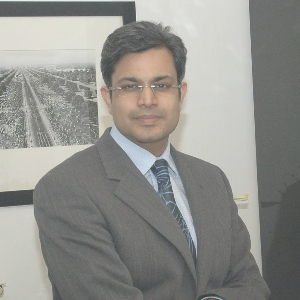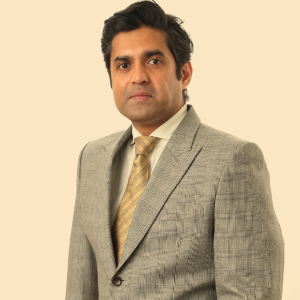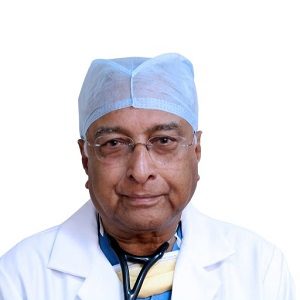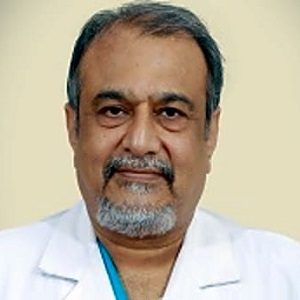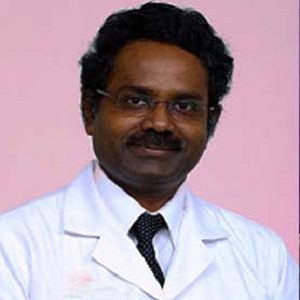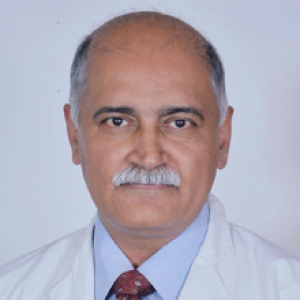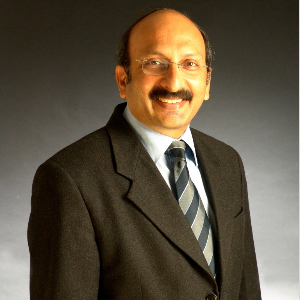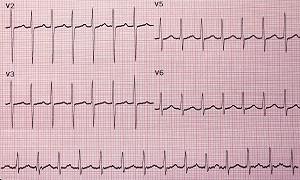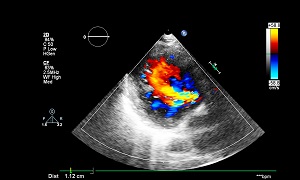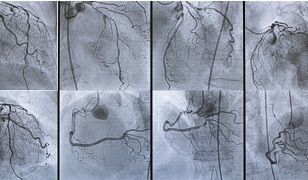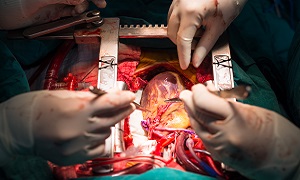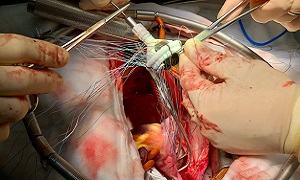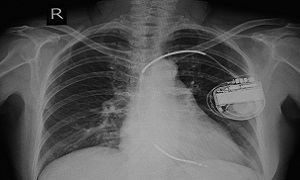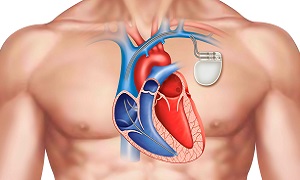Best Doctors in India for Congestive Heart Failure treatment
- Cardiac Surgeon, New Delhi, India
- Over 30 years’ experience
Profile Highlights:
- Dr. Z S Meharwal is a well-known cardiac surgeon in India who has performed over 20,000 cardiac surgeries, including some of the most complex and high-risk cardiac procedures.
- Dr. Meharwal is a member of the founding team that started the Fortis Escorts Heart Institute and has been associated with the hospital since then.
- His interest lies in Minimally Invasive Cardiac procedures, valve repair, and replacement, and heart transplants among other major vascular and thoracic surgeries.
- Cardio Thoracic & Vascular Surgeon, Gurugram, India
- Over 35 years’ experience
Profile Highlights:
- Dr. Anil Bhan is an excellent Cardiovascular and thoracic surgeon who has performed more than 15,000 cardiac and vascular surgeries that include heart transplant surgery, aortic aneurysm surgery, pediatric cardiac surgery, valve repairs, and peripheral vascular surgery among several others.
- He is one of the best pediatric cardiac surgeons in Delhi/ NCR and is credited with performing heart bypass surgery on the youngest patient in India in 2007 (18 months).
- He performed the first extracorporeal membrane oxygenation and was the first to use a harmonic scalpel for harvesting radial mammary artery conduits in India in 2000 and 1995 respectively.
- Cardiac Surgeon, Gurugram, India
- Over 40 years’ experience
Profile Highlights:
- Dr. Naresh Trehan is one of the most highly skilled and globally recognized cardiothoracic and vascular surgeons.
- He started his career as a Cardiac Surgeon at New York University Medical Centre where he performed over 3000 coronary artery surgeries and returned to India in 1988 and founded the Escorts Heart Institute and Research Center in New Delhi.
- Dr. Trehan is the Founder Chairman of Medanta- The Medicity in Gurugram, a premier multi-specialty hospital with state-of-the-art infrastructure and equipped with the latest and advanced technologies.
- Cardio Thoracic & Vascular Surgeon, New Delhi, India
- Over 16 years’ experience
Profile Highlights:
- Dr. Mukesh Goel is a reputed Cardio-Thoracic and Vascular surgeon serving as a Senior Consultant of the specialty at Indraprastha Apollo Hospital, New Delhi.
- He carries an experience of 16+ years and has performed more than 3000 different cardiac surgeries. Dr. Mukesh Goel is constantly on the lookout to develop new and innovative techniques to perform cardiac procedures that help in quick recovery with minimum incisions.
- His expertise lies in on and off-pump bypass surgeries and also finds interest in beating heart bypass surgery, open-heart surgery, minimally invasive heart valve surgery, and pediatric cardiac surgery among several others.
- Dr. Mukesh Goel received his training in CTVS from one of the most renowned cardiac surgeons in India, Dr. Naresh Trehan, and has been using the exposure to perform various advanced and complex heart surgeries.
- Before joining Indraprastha, Dr. Goel has been associated with other prestigious heart centers in India like Escorts Heart Institute, Apollo Hospital in New Delhi, and Medanta in Gurugram where he helped in starting the Heart surgery unit.
- He frequently gets invited to attend cardiology conferences and seminars to deliver lectures and present papers. He also regularly takes part in workshops and CMEs for cardiac surgeries.
- Dr. Mukesh Goel is a keen researcher and has published a number of papers and articles on CTVS in renowned national and international medical journals.
- Heart & Lung transplant Surgeon, Hyderabad, India
- Over 20 years’ experience
Profile Highlights:
- Dr. Sandeep Attawar is a highly recognized Heart and Lung transplant surgeon in India who has over 2 decades of experience as a cardiac surgeon and has performed more than 10,000 cardiac surgeries on adult and pediatric patients.
- Dr. Attawar specializes in all types of surgeries for adults as well as pediatric heart patients and finds interest in heart and lung transplant surgery, congenital heart surgery, Aortic aneurysm repair, and implantation of heart failure devices.
- Cardiac Surgeon, Cardiothoracic Surgeon, Vascular Surgeon; Chennai, India
- Over 45 years’ experience
Profile Highlights:
- Padma Bhushan awardee Dr. Girinath M R is a senior cardio-thoracic Surgeon in Chennai having experience of more than 45 years in Cardiac Surgery.
- Dr. M R Girinath was a fellow of Coronary Artery Surgery and Congenital Heart Surgery at the University of Wisconsin, USA.
- He provides consultation and diagnostic services for Mitral/Heart Valve Replacement, Cardiac Pacing, Invasive Cardiology, ABPM, Balloon Mitral Valvuloplasty, CT Angiography, etc.
- Cardiac Surgeon, Cardiothoracic Surgeon, Vascular Surgeon; Chennai, India
- Over 37 years’ experience
Profile Highlights:
- LF Sridhar is a well-known Cardiothoracic & Vascular Surgeon in Chennai, now working at Apollo Hospital in Greams Road, Chennai, and has an experience of 37 years in this arena.
- Some of the services available with the doctor are Mitral/Heart Valve Replacement, Cardiac Pacing, and Intra – Arterial Thrombolysis, Pacemaker Implantation, and bypass surgery besides the regular OPD procedures.
- Cardiac Surgeon, Cardiothoracic Surgeon, Vascular Surgeon, Chennai, India
- Over 25 years’ experience
Profile Highlights:
- Dr. K Madhan Kumar is a well-known Cardiac Surgeon in Tamil Nadu, having many years of experience in the domain.
- His experience came from practice and teaching. These days, he is associated with Apollo Hospital Greams Road in Chennai as a Senior Consultant Cardiothoracic & Transplant Surgeon.
- Dr. Kumar has also completed Fellowships in Cardiothoracic Surgery at SGH in London as well as ECMO, VAD, and transplantation at HH in London.
- Cardiac Surgeon, New Delhi, India
- Over 29 years’ experience
Profile Highlights:
- Dr. Kulbhushan Singh Dagar, a pioneer and an expert in the cardiology field earned his reputation through his exceptional performance in the field of complex congenital heart defects, especially for newborns.
- With over 29 years of experience, Dr. Dagar has dedicatedly performed complex surgical procedures by implementing innovative techniques and cutting-edge technologies in his procedures and is currently considered an asset to the cardiac industry, not just nationally, but internationally too!
- Interventional Cardiologist, Gurugram, India
- Over 30 years’ experience
Profile Highlights:
- Dr. Praveen Chandra is one of the most well-known and respected Interventional Cardiologists in India and performs over 5000 percutaneous and diagnostic interventions every year.
- He specializes in devising techniques that help minimize open surgeries. Dr. Praveen Chandra performed the first Percutaneous Aortic Valve implantation without surgery in India.
- He also developed techniques to reduce the number of patients requiring bypass surgeries and has been trying to make angioplasty techniques more accurate to help with the treatment of multiple blocked arteries.
Best Hospitals in India for Congestive Heart Failure treatment
Paras Hospital, Gurugram
- City: Gurugram, India
Hospital Highlights:
- Paras hospital was established in 2006 and is the 250 bedded flagship hospital of Paras Healthcare.
- The is supported by a team of doctors of international and national repute.
- The hospital is NABH accredited and also the first hospital in the region to have a NABL accredited laboratory.
- The hospital provides specialty medical services in around 55 departments including Neurosciences, Joint Replacement, Mother & Child Care, Minimal Invasive Surgery, Gynecology and Obstetrics, Ophthalmology, Dermatology, Endocrinology, Rheumatology, Cosmetic and Plastic surgery.
- The hospital is equipped with state-of-the-art technologies.
S L Raheja Hospital, Mahim, Mumbai
- City: Mumbai, India
Hospital Highlights:
- SL Raheja hospital is a 140-bed multi-specialty tertiary care hospital that is being managed by Fortis Healthcare Ltd.
- The hospital is a benchmark in healthcare and medical facilities in the neighborhood of Mahim & the western suburbs.
- L.Raheja Hospital, Mahim has one of the most effective ICU and Casualty care services.
- The hospital provides specialty medical services in Cardiology, Oncology, Neurology, Orthopedics, Mother & Child Care, and in Diabetes.
Wockhardt Hospitals, Mumbai
- City: Mumbai, India
Hospital Highlights:
- Wockhardt Hospitals were established in the year 1973, originally called First Hospitals and Heart Institute.
- Wockhardt Hospitals are super specialty health care networks in India, nurtured by Wockhardt Ltd, India’s 5th largest Pharmaceutical and Healthcare company.
- Wockhardt Hospitals is associated with Partners Harvard Medical International, an international arm of Harvard Medical School, USA.
- Wockhardt Heart Hospital performed India’s first endoscopic heart surgery.
- The hospital has a state-of-the-art infrastructure equipped with the latest technologies and modern equipment.
- It has special Centers of Excellence dedicated to the major specialties to provide hassle-free and high-quality clinical care.
Pushpawati Singhania Hospital & Research Institute, New Delhi
- City: New Delhi, India
Hospital Highlights:
- Established in 1996, Pushpawati Singhania Research Institute is one of the top hospitals in the NCR region, as well as one of the top facilities in India for gastroenterology. The hospital is one of South Asia’s first institutes in medical and surgical treatment for diseases related to digestion.
- The hospital is equipped with state-of-the art facilities coupled with the latest equipment as well as renowned consultants from various parts of India as well as other parts of the world.
W Pratiksha Hospital, Gurgaon
- City: Gurugram, India
Hospital Highlights:
- W Pratiksha Hospital, Gurugram, is one of the best hospitals in the NCR region. It is also a top hospital in India for IVF. Since its inception, the hospital has performed over 5500 successful IVFs. The hospital also specializes in gynecology.
- With over 20 years of experience in providing quality healthcare, the hospital is known as one of the most trusted and valued health providers in India.
- Equipped with world-class medical facilities and advanced technology, the hospital’s doctors and clinicians also have a track record of delivering excellent results. The hospital is also known for focusing on preventive well-being as much as on curative treatment.
- The hospital has earned the trust of its patients, by providing the best available treatments at affordable costs.
Narayana Superspeciality Hospital, Gurugram
- City: Gurugram, India
Hospital Highlights:
- Situated near DLF Cyber City, Gurugram, Narayana Superspecialty Hospital is one of the top medical facilities in the Delhi NCR region, catering to the needs of the people. Known for its commitment to quality medical care and patient service, the hospital is a state-of-the-art facility with planned and well-equipped sections, which includes a spacious OPD area as well as comfortable patient rooms.
- It is the closest super-specialty hospital from Indira Gandhi International Airport towards Gurugram, and also the nearest super specialty hospital from DLF Cyber City. It is also close to major residential areas in Gurugram.
- It is part of the renowned Narayana Health Group. Established in 2000, by Dr. Devi Shetty, a renowned cardiac surgeon, it has grown to be one fo India’s leading healthcare groups.
Sir Ganga Ram Hospital, New Delhi
- City: New Delhi, India
Hospital Highlights:
- Sir Ganga Ram Hospital, New Delhi is known to provide the latest medical procedures with the latest technology in all of its units.
- The hospital has a team of reputed doctors, nurses, and healthcare professionals that ensure that patients receive quality care at affordable costs.
- Staffed with a team of highly qualified doctors, dedicated nurses, and paramedical and non-medical staff, the hospital aims to lead in healthcare delivery, medical education, training, and research.
- As per the vision of the founder, the hospital also provides free treatment to the economically weaker sections of society.
- Sir Ganga Ram Hospital also provides training to young doctors under the Diplomate in National Board(DNB) program. The DNB program at the hospital was started in 1984 and it is known for currently running the maximum number of DNB specialties in the country. It also has the distinction of having the first bone bank in India.
KIMS Hospital, Hyderabad
- City: Hyderabad, India
Hospital Highlights:
- KIMS Hospital (a brand name of Krishna Institute of Medical Sciences) is one of the largest and best multi-speciality hospitals in Hyderabad. The hospital provides various treatments to an enormous number of patients.
- The hospital has a capacity of more than 3000 beds. KIMS Hospitals offers different healthcare services in more than 25 specialities and super specialities.
- The hospital is equipped with modern medical equipment and technology. It has robotic equipment to provide minimal invasive techniques for patients.
- The hospital is aimed at providing world-class healthcare facilities and services at an affordable cost for patients.
- The various specialities and departments of the hospital include neurosciences, gastroenterology & hepatology, robotic science, reproductive sciences, dental science, oncological sciences, organ transplantation, heart and lung transplantation and mother and child care.
Fortis Hospital, Shalimar Bagh
- City: New Delhi, India
Hospital Highlights:
- Fortis Hospital in Shalimar Bagh is a multi-super specialty hospital that strives to provide world-class patient care by leaving no stone unturned.
- Fortis, Shalimar Bagh, with 262 beds and a 7.34-acre footprint, provides the best level of medical care through its team of doctors, nurses, technicians, and management professionals.
Reliance Hospital, Mumbai
- City: Mumbai, India
Hospital Highlights:
- Reliance Hospital is one of the best super-specialty care hospitals in Navi Mumbai.
- The main purpose of this hospital is to become a trustworthy place for the best health and hope for society. The hospital is well connected to the suburbs of Mumbai and Navi Mumbai.
- The hospital has various specialty departments, viz., Accident & Emergency, Anesthesiology, Dental Services, Dermatology, Diabetology, Dietetics Nutrition, Endocrinology, ENT, Gastroenterology, General Surgery, Gynaecology And Obstetrics, Hepato Pancreato Biliary Surgery, Infectious Disease, Internal Medicine, Interventional Radiology, Laboratory Medicine, Minimal Access Laparoscopic Surgery, Nephrology, Neurosciences, Opthalmology, Orthopaedics, Paediatrics, Pain Management Palliative Care, Physical Medicine Rehabilitation, Plastic And Reconstructive Surgery, Psychiatry, Pulmonary Medicine, Radiology, Rheumatology, Transplant, Urology Andrology, Vascular Surgery
Congestive Heart Failure
Congestive heart failure is a progressive condition affecting the pumping of blood. It occurs when the muscles of your heart fail to pump blood efficiently. This is mainly because of certain conditions like coronary artery disease (narrowing of arteries in your heart) and high blood pressure that weaken your heart. This results in inefficient filling of blood in your heart and pumping further.
Types of Heart Failure
- Left-sided Heart Failure – There is shortness of breath as the fluid backs up in the lungs.
- Right-sided Heart Failure – There is swelling because the fluid backs up into the legs, feet, and abdomen.
- Systolic Heart Failure – There is a pumping problem as the left ventricle cannot contract vigorously.
- Diastolic Heart Failure – Also known as heart failure with preserved ejection fraction, the left ventricle cannot fill fully or relax fully in this condition. This indicates a filling problem.
Causes of Congestive Heart Failure
When other conditions damage or weaken your heart, you may experience Heart Failure. This can also occur due to the stiffness of the heart. The ventricles (main pumping chambers of your heart) become stiff and don’t fill properly between the beats causing heart failure. In some cases of Heart Failure, there are weakened and damaged heart muscles. Due to this, the ventricles dilate (stretch) up to a point that the heart fails to pump blood efficiently throughout your body.
With the passage of time, the heart fails to fulfil the demands of pumping blood to the entire body. An ejection fraction helps to determine the pumping capacity of your heart while helping to identify Heart Failure for appropriate treatment. If the heart muscle becomes stiff due to high blood pressure, it may result in Heart Failure.
- High Blood Pressure or Hypertension- If you are suffering from hypertension, then your heart needs to work strenuously for circulating the blood throughout the body. This makes the heart muscles either stiff or weak for efficient pumping of blood.
- Cardiomyopathy- Also called the heart muscle damage, it has causes like infections, the toxic effect of drugs, diseases, alcohol abuse, and genetic factors.
- Coronary artery disease- It is a common form of heart disease and a common cause of heart failure. It occurs due to the buildup of plaque (fatty deposits) in your arteries. This reduces the flow of the blood causing heart attack.
- Congenital heart defects- These are the heart defects you are born with. If the chambers and valves of your heart don’t form correctly, the heart needs to work harder for pumping blood. This may cause Heart Failure.
- Faulty heart valves- The valves of the heart maintain the blood flow in a proper direction through your heart. Coronary artery disease, heart defects, or heart infection may damage the valve of your heart. This again forces your heart to work strenuously and weaken it with the passage of time.
- Heart arrhythmia– Also called the abnormal heart rhythm, it causes faster beating of your heart and creates extra work for it. However, Heart Failure may also take place due to slow heartbeats.
- Myocarditis- It is an inflammation of the muscles of the heart. Most of the viruses cause myocarditis which ultimately leads to left-sided Heart Failure.
- Other diseases- Chronic diseases like HIV, hypothyroidism, diabetes, hemochromatosis (buildup of iron), hyperthyroidism or amyloidosis (buildup of protein) may cause Heart Failure.
Symptoms of Congestive Heart Failure
- Edema (or swelling) in your legs, feet, and ankles
- Ascites or swelling of your abdomen
- Dyspnea or shortness of breath upon lying down or normally
- Reduced ability to exercise
- Nausea
- Weakness
- Persistent coughing or wheezing with blood-tinged phlegm
- Lack of appetite
- Fatigue
- Decreased alertness or difficulty in concentrating
- Irregular or rapid heartbeat
- Coughing up foamy, pink mucus
- Chest pain
- Increased urination during the night time
- Sudden and severe shortness of breath
Diagnosis of Congestive Heart Failure
Your doctor will note down a careful medical history, perform a physical examination, and review your symptoms to diagnose Heart Failure. Your doctor might check for risk factors like diabetes, blood pressure, and coronary artery disease. He or she might check for congestion in the lungs with the help of a stethoscope. This also helps in detecting abnormal heart sounds indicating Heart Failure. He or she will also check for fluid buildup in your legs and abdomen.
Blood tests
Electrocardiogram
Chest X-ray
Echocardiogram
Stress test
Stress test measures your heart’s health by evaluating the response of the heart to exertion. Your doctor might ask you to walk on a treadmill while an ECG machine is attached. Sometimes, the test is done wearing a mask that measures the ability of your lungs and heart to take in oxygen while breathing out carbon dioxide. Your doctor might use imaging techniques to visualize the heart while the test is on.
Magnetic Resonance Imaging
Computerized Tomography Scan
Myocardial Biopsy
Coronary Angiogram
Treatment options for Congestive Heart Failure
Medications
- Angiotensin-converting enzyme inhibitors: ACE inhibitors help people with systolic Heart Failure feel better. They are vasodilators and widen the blood vessels to reduce blood pressure. This improves the blood flow and decreases the workload on the heart.
- Angiotensin II receptor blockers: They have benefits similar to the ACE inhibitors and are an alternative for the people who can’t tolerate ACE inhibitors.
- Beta-blockers: These drugs slow down the heart rate and reduce blood pressure. This helps in limiting or reversing the damage to your heart if you have systolic Heart Failure. They reduce the risk of abnormal heart rhythms and improve heart function.
- Diuretics: These drugs make you urinate frequently and prevent the collection of fluids in your body. They also decrease fluid in the lungs for better breathing.
- Aldosterone antagonists: They help people with systolic Heart Failure to live longer.
- Inotropes: Your doctor will prescribe these drugs if you had severe Heart Failure to improve the pumping function of the heart and maintain the blood pressure.
Surgery and medical devices
Coronary bypass surgery
Heart valve repair
Implantable cardioverter-defibrillators
Cardiac Resynchronization Therapy
Palliative care


